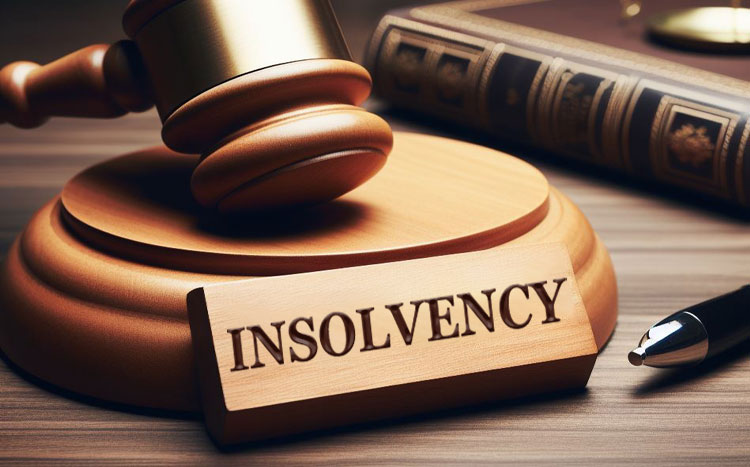Insolvency lawyers play a crucial role in the legal system, specializing in navigating the complex field of insolvency law. With their expertise in financial matters and legal procedures, these professionals provide invaluable assistance and support to individuals and businesses facing financial distress. In this comprehensive overview, we will delve into the responsibilities of insolvency lawyers, the legal framework governing insolvency, the path to becoming an insolvency lawyer, their day-to-day work, and the impact they have on the economy.
Understanding the Role of Insolvency Lawyers
Insolvency lawyers act as guides and advocates for clients who find themselves in dire financial situations. They possess a deep understanding of insolvency law and regulations, allowing them to assist their clients in navigating through the complexities of debt restructurings, bankruptcy filings, and other insolvency proceedings. Their aim is to help clients achieve the most favorable outcomes during times of financial hardship.
These dedicated professionals work closely with individuals, corporations, and creditors to devise effective strategies to address financial challenges. By providing expert legal advice and representing their clients’ interests, insolvency lawyers strive to find fair solutions that benefit all parties involved.
When it comes to understanding the role of insolvency lawyers, it is important to delve into the key responsibilities they undertake. These responsibilities are not only crucial but also multifaceted, requiring a diverse skill set to navigate the complex world of insolvency law.
Key Responsibilities of Insolvency Lawyers
Insolvency lawyers take on a wide range of responsibilities in their pursuit of resolving financial crises. Their primary roles include:
- Assessing financial situations and advising clients on available options.
- Filing necessary legal paperwork and representing clients in court proceedings.
- Negotiating with creditors to reach favorable repayment terms.
- Developing and implementing strategies for debt restructuring or asset liquidation.
These responsibilities are the backbone of an insolvency lawyer’s work. They require a meticulous attention to detail and a deep understanding of the legal landscape surrounding insolvency proceedings. By fulfilling these responsibilities, insolvency lawyers play a vital role in helping clients overcome financial difficulties and regain stability.
The Importance of Insolvency Lawyers in Business
Insolvency lawyers play an essential role in the business world. In times of financial distress, they provide guidance and legal support to financially troubled companies. By examining the intricacies of each situation, insolvency lawyers help businesses navigate the challenging process of restructuring debts, preventing bankruptcy, and preserving jobs. Their expertise and negotiation skills often lead to viable solutions that allow businesses to continue operating and contribute to economic growth.
Moreover, insolvency lawyers act as a safety net for creditors, ensuring that their rights are protected during insolvency proceedings. By facilitating negotiations and representing their interests, these lawyers strive to find equitable resolutions that minimize losses and maintain the integrity of the financial system.
In addition to their role in business, insolvency lawyers also play a crucial part in the personal lives of individuals facing financial difficulties. Whether it’s helping individuals navigate personal bankruptcy or providing guidance on debt restructuring, these lawyers offer much-needed support during times of crisis.
Overall, the role of insolvency lawyers goes beyond just legal expertise. They provide a sense of reassurance and guidance to clients, helping them navigate the complex world of insolvency and find a path towards financial stability.
The Legal Framework for Insolvency
The legal framework governing insolvency varies from country to country. However, some common elements exist across jurisdictions. Understanding this framework is crucial for insolvency lawyers to provide effective legal counsel. Let’s explore two key aspects:
Bankruptcy Laws and Regulations
Bankruptcy laws outline the legal procedures for individuals and businesses to declare bankruptcy. These laws determine the rights and obligations of debtors, creditors, and other stakeholders during insolvency proceedings. Insolvency lawyers must have an in-depth knowledge of these laws to guide their clients through the bankruptcy process, ensuring compliance with legal requirements and protecting their clients’ rights.
Moreover, bankruptcy laws often contain provisions for different types of bankruptcy, such as Chapter 7 and Chapter 11 in the United States. These chapters provide distinct procedures for liquidation and reorganization, respectively. Understanding the nuances of each chapter is essential for insolvency lawyers to determine the most suitable course of action for their clients based on their financial circumstances and goals.
The Process of Declaring Insolvency
Insolvency lawyers assist clients in understanding and navigating the process of declaring insolvency. This often involves filing necessary paperwork, notifying creditors, and adhering to specific timelines and guidelines set by the legal system. Insolvency lawyers play a pivotal role in guiding their clients through each step of this process, ensuring that all legal obligations are met and protecting their clients’ interests.

Furthermore, the process of declaring insolvency may also involve negotiations with creditors to reach a settlement or restructuring plan. Insolvency lawyers leverage their expertise in negotiation and communication to advocate for their clients’ best interests while seeking a mutually beneficial agreement with creditors. This collaborative approach can help mitigate the adversarial nature of insolvency proceedings and facilitate a smoother resolution for all parties involved.
The Path to Becoming an Insolvency Lawyer
Becoming an insolvency lawyer requires dedication, extensive education, and specialized training. Let’s explore the key steps involved in this rewarding career:
First and foremost, aspiring insolvency lawyers usually start their legal journey by obtaining an undergraduate degree in law. This foundational education provides them with a fundamental understanding of legal principles, such as contract law, tort law, and constitutional law. It also introduces them to the intricacies of the legal system and helps them develop critical thinking and analytical skills.
Following their undergraduate studies, aspiring insolvency lawyers typically pursue a Juris Doctor (J.D.) degree from an accredited law school. This advanced degree delves deeper into various areas of law, including bankruptcy law, corporate law, and commercial law. Students gain a comprehensive understanding of the legal framework surrounding insolvency and develop the necessary skills to navigate complex financial situations. Click here to learn about why Canberra businesses need expert commercial lawyers.
After obtaining their J.D., graduates must pass the bar exam to become licensed to practice law in their respective jurisdiction. This is a critical step that ensures insolvency lawyers possess the necessary legal knowledge and competence to represent clients effectively. The bar exam is a rigorous test that evaluates a candidate’s understanding of legal principles, ethical responsibilities, and ability to apply the law to real-life scenarios.
Skills and Qualities of Successful Insolvency Lawyers
Successful insolvency lawyers possess a unique combination of skills, qualities, and traits that contribute to their effectiveness in this field. Some of these key attributes include:
- Strong analytical and problem-solving abilities: Insolvency lawyers must be able to analyze complex financial situations, identify potential issues, and develop strategic solutions to protect their clients’ interests.
- Excellent communication and negotiation skills: Effective communication is crucial in the field of insolvency law. Lawyers must be able to clearly articulate complex legal concepts to clients, negotiate with creditors, and advocate for their clients’ rights in court.
- Attention to detail and a meticulous approach to legal matters: Insolvency cases often involve intricate financial transactions and voluminous documentation. Lawyers must have a keen eye for detail to identify potential pitfalls and ensure accuracy in their legal analysis.
- Ability to work under pressure, meeting deadlines and managing complex cases: Insolvency cases can be time-sensitive and involve multiple stakeholders. Lawyers must thrive in high-pressure environments, juggling multiple tasks and meeting strict deadlines.
- Empathy and a genuine desire to help clients through challenging times: Insolvency lawyers often work with individuals and businesses facing financial distress. Having empathy and a genuine desire to help clients navigate these difficult situations is essential to providing effective legal representation.
These qualities, coupled with a strong understanding of financial matters and insolvency law, enable insolvency lawyers to provide the highest level of service to their clients. By combining their legal expertise with their interpersonal skills, insolvency lawyers play a vital role in helping individuals and businesses overcome financial challenges and achieve a fresh start.
As you can see, the path to becoming an insolvency lawyer is demanding but rewarding. It requires a solid educational foundation, passing the bar exam, and developing a unique set of skills and qualities. If you are passionate about helping individuals and businesses navigate financial difficulties, this career path may be the perfect fit for you.
The Day-to-Day Work of an Insolvency Lawyer
The work of an insolvency lawyer is dynamic and multifaceted. While the specifics may vary depending on the nature of the cases they handle, there are some common tasks and duties that are typically part of their day-to-day work:
Typical Tasks and Duties
Insolvency lawyers spend a significant amount of time working directly with clients, analyzing their financial situations, and devising appropriate strategies. They also handle a wide range of legal tasks, including:
- Preparing legal documents, such as bankruptcy petitions and debt restructuring agreements.
- Conducting legal research to support their cases and provide accurate advice to clients.
- Representing clients in court proceedings, negotiating with creditors, and attending meetings.
- Collaborating with other professionals, such as accountants and financial advisors, to gather supporting information and build strong cases.
Challenges and Rewards of the Job
The work of an insolvency lawyer is not without its challenges. They often deal with emotionally charged situations and must navigate complex legal landscapes. At times, finding equitable solutions that satisfy all parties can be challenging. However, the rewards of this profession are significant. Insolvency lawyers have the opportunity to make a tangible impact on people’s lives, helping them regain financial stability and overcome their financial burdens.
The Impact of Insolvency Lawyers on Economy
Insolvency lawyers play a vital role in maintaining economic stability and fostering confidence in the financial system. Let’s explore two key areas where they have a substantial impact:

How Insolvency Lawyers Contribute to Economic Stability
By assisting financially troubled businesses in navigating insolvency proceedings, insolvency lawyers help prevent the complete collapse of companies and the resulting loss of jobs. They work diligently to develop strategies that preserve value, protect stakeholders, and promote economic recovery. Their expertise in debt restructuring ensures that viable businesses have the opportunity to reorganize and continue contributing to the economy.
The Role of Insolvency Lawyers in Financial Crises
During financial crises, insolvency lawyers are critical in mitigating the impact and facilitating recovery. They analyze the intricacies of complex financial issues, propose viable solutions, and provide legal guidance to individuals, corporations, and government entities. Their efforts contribute to stabilizing the financial system and aiding in economic recovery.
Conclusion
In conclusion, insolvency lawyers play a pivotal role in the legal and economic landscape. Their deep understanding of insolvency laws, extensive education, and unique skill set allow them to navigate complex financial situations, provide essential legal advice, and contribute to economic stability. Whether it’s assisting individuals or businesses, their dedication and expertise make them invaluable allies during times of financial distress. Insolvency lawyers not only guide their clients through difficult times but also strive to create equitable outcomes that benefit both their clients and the economy as a whole.







